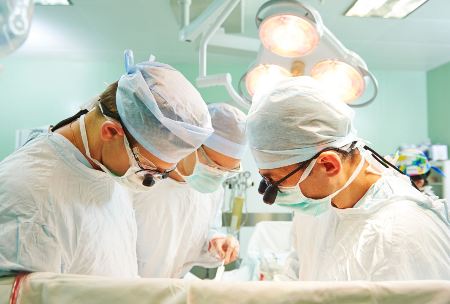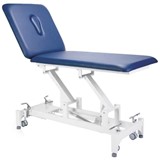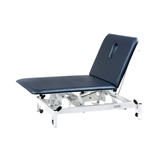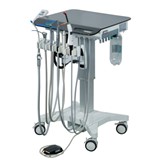Concurrent analysis indicates making the technology available to patients across public health systems would also be cost-effective if focused in high-volume hospitals.
Director of Robotic Surgery at Peter MacCallum, A/Prof Declan Murphy recently presented the findings of the three-year analysis of Victorian public and private open and robot-assisted procedures at the American Urological Association Annual Meeting in Orlando, USA.
Men who have a robot-assisted radical prostatectomy enjoyed better outcomes, according to A/Prof Murphy.
Surgery, post-surgery benefits
"Our large-scale analysis shows the average hospital stay after a robot-assisted radical prostatectomy was 1.4 days compared to 4.8 days for an open procedure, with 85 per cent of men being discharged the day after surgery," he said.
Of the 284 men who underwent a robot-assisted procedure at Peter MacCallum, none required a blood transfusion, compared with 15 per cent of conventional surgery cases elsewhere in the public system.
A/Prof Murphy said: "Men having an open procedure also had a one-third greater chance of cancer remaining on the fringes of excised tissue, which in turn makes them five times more likely to require additional cancer treatment in the 12 months following surgery."
Fiscal benefit for hospitals
A/Prof Murphy said: "In addition to consistent health benefits, the study shows the cost of implementing robot-assisted surgery becomes a net positive to the public health system, if operated in hospitals that conduct more than 140 procedures a year."
A 'tipping point' can be reached in larger centres as the cost of commissioning and maintaining this equipment becomes financially viable over the operational lifespan, due to consistent savings in hospital bed days and blood transfusions.
"Our statistical approach to this analysis is important because, in factoring in efficiency savings, it challenges the prevailing activity-based funding model – common across many health systems in developed economies – which allocates a set cost to procedures based on disease-related group, a cost often based on data that is out-of-date."
Professor Alexander Heriot, Director, Cancer Surgery at Peter MacCallum said: "The global health benefits described in the research support the broader strategic introduction of surgical robots in Victoria.
"This study shows there is scope to establish up to three further high-volume centres for robot-assisted surgery in Victoria, enabling more patients to benefit from the comparable advantages of this cutting-edge approach, while also benefiting the treating hospital and the public health system at large through cost savings."










-160x160-state_article-rel-cat.png)








